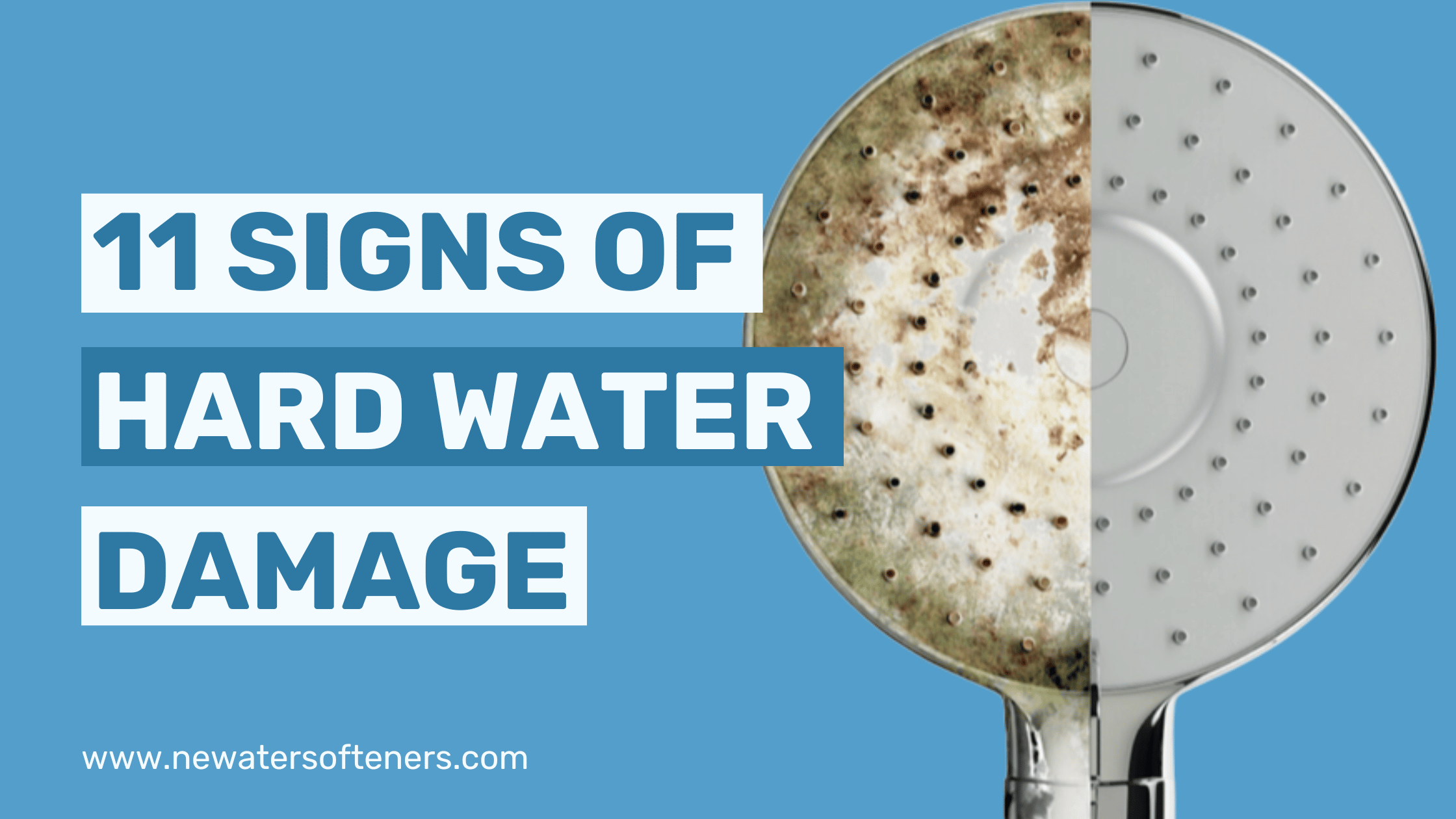11 Signs of Hard Water Limescale Damage

Is Hard Water Damaging Your Home?
11 Signs of Hard Water and Limescale Damage in UK Homes
Hard water is water that contains high levels of calcium and magnesium minerals. Over 60% of homes in the UK are affected by hard water and the costly limescale damage it causes. While most homeowners are familiar with unsightly limescale around taps and shower screens, few realise the full extent of the hidden damage hard water can cause inside your home.
If you’re wondering “Is hard water damaging my home?” — here are the warning signs to look for.
11 Signs of Hard Water and Limescale Build-Up
Do you recognise any of these common hard water problems in your home?
- White chalky deposits on taps, shower screens, and glassware.
- Blocked taps and clogged shower heads reducing water flow.
- Limescale and scum in kettles and tea – ruining the taste.
- Reduced water pressure from taps or showers.
- Boiler and heating issues from internal mineral build-up.
- Appliance breakdowns in washing machines and dishwashers.
- Unexpectedly high energy bills.
- Time-consuming cleaning and increased use of limescale removers.
- Skin problems like dry skin, eczema or acne.
- Laundry not cleaning properly, often with stains or dullness.
- Using excess shampoo and soap with very little lather.
How Hard Water Causes Damage to Your Home
While some effects of hard water are visible, many of the most expensive damages happen out of sight. Here’s how limescale silently harms your home:
1. Appliance Damage
Hard water minerals build up inside heating elements of kettles, washing machines, and dishwashers. This reduces cleaning performance and shortens appliance lifespans — leading to more frequent replacements.
2. Blocked Taps and Shower Heads
Limescale gradually clogs fixtures, reducing water pressure and forcing homeowners to replace fittings more often than expected.
3. Heating Efficiency and Energy Bills
Limescale lines your pipes, acting as insulation and preventing efficient heat transfer. This forces boilers and heating systems to work harder — using more energy and increasing your monthly bills.
4. Boiler Breakdowns
Limescale build-up in your boiler can eventually cause blockages and damage beyond repair. This leads to expensive callouts or even full replacements, sometimes just years after installation.
5. Damage to Kitchen and Bathroom Renovations
Recently renovated your bathroom or kitchen? Hard water can leave scale stains on taps, shower screens, and tiles in just a matter of weeks — ruining your investment.
6. Jacuzzi and Hot Tub Problems
Hard water doesn’t just affect taps — it also damages expensive hot tubs and jacuzzis. Scale inside jets and plumbing reduces performance and can lead to costly repairs.
How to Prevent Hard Water Damage for Good
Looking for how to remove hard water damage from your home? While temporary natural cleaning remedies such as vinegar or lemon juice may help with surface limescale, they can’t address the root cause.
Why Natural Remedies and Cleaning Products Don’t Work Long-Term
You can try natural cleaning products like:
- Vinegar
- Bicarbonate of soda
- Lemon juice
- Commercial limescale removers
But these only treat visible limescale temporarily. The moment hard water flows again, the build-up returns. And these methods can’t reverse internal pipe or appliance damage.
The Long-Term Solution: Install a Water Softener
A water softener is the only proven way to permanently remove hard water and prevent future limescale damage. It connects to your home’s main supply and filters out calcium and magnesium — converting hard water into soft, lather-rich water.
Benefits of Installing a Water Softener:
- Protects pipes, boilers, and appliances from scale damage.
- Improves water pressure by preventing blockages.
- Lowers heating and energy bills by restoring boiler efficiency.
- Prevents white stains and scale build-up on taps and tiles.
- Reduces dry skin, eczema and scalp irritation caused by hard water.
- Extends the life of household appliances.
- Cuts down on cleaning time and products needed.
Ready to Eliminate Hard Water From Your Home?
If you’re noticing the signs of limescale damage, don’t wait until repairs get expensive. A high-quality water softener is an investment that protects your home and saves you money over time.
📞 Call North East Water Softeners on 01429 872 522
}
